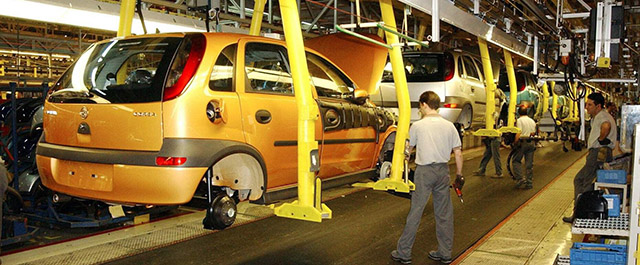CdM | Economic growth in the Eurozone manufacturing sector continued to contract in July, and did so at the fastest rate since December 2012, according to the latest PMI index. Germany remained a source of weakness, registering its largest deterioration in 7 years.
The July PMI index for the Eurozone manufacturing sector, elaborated by the consultant Markit, is below the no change level of 50, which separates growth from contraction, for the sixth consecutive month. Registering 46.5, it shows the worst deterioration in operating conditions since December 2012. The index fell from the 46.6 registered in June, although it ended up slightly above the previous flash reading for July of 46.4.
Of the three categories of market groups covered by this study, persistent contractions can be observed in the sectors of intermediary goods and capital goods. This latter sector registered the worst deterioration since November 2012. In contrast, growth remained among producers of consumption goods.
The general slowdown in the manufacturing economy is due mainly to the sharp fall in new orders. The latest data shows that this fall was the second sharpest registered by the survey in a little over six years (exceeded only by the contraction last March), given that continuous trade tensions, difficulties in the car industry and political uncertainties continue to affect demand in both national and international markets.
The weakening in order books translated into a reduction in both production and in purchasing activity among manufacturers in the Eurozone. Production has fallen at the fastest rate since April 2013, while the reduction in purchasing activity was the sharpest since the end of 2012.
Germany was undoubtedly the most pessimistic country about production over 12 months. Germany remains a source of weakness, given that its manufacturing economy suffered its worst deterioration in operating conditions in 7 years.





